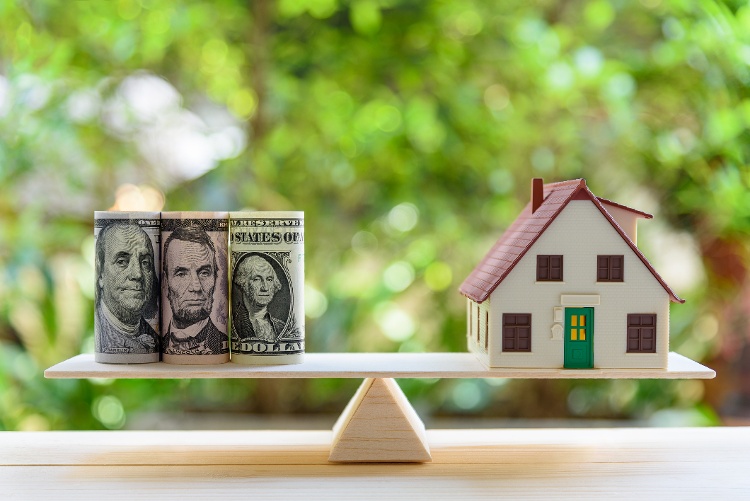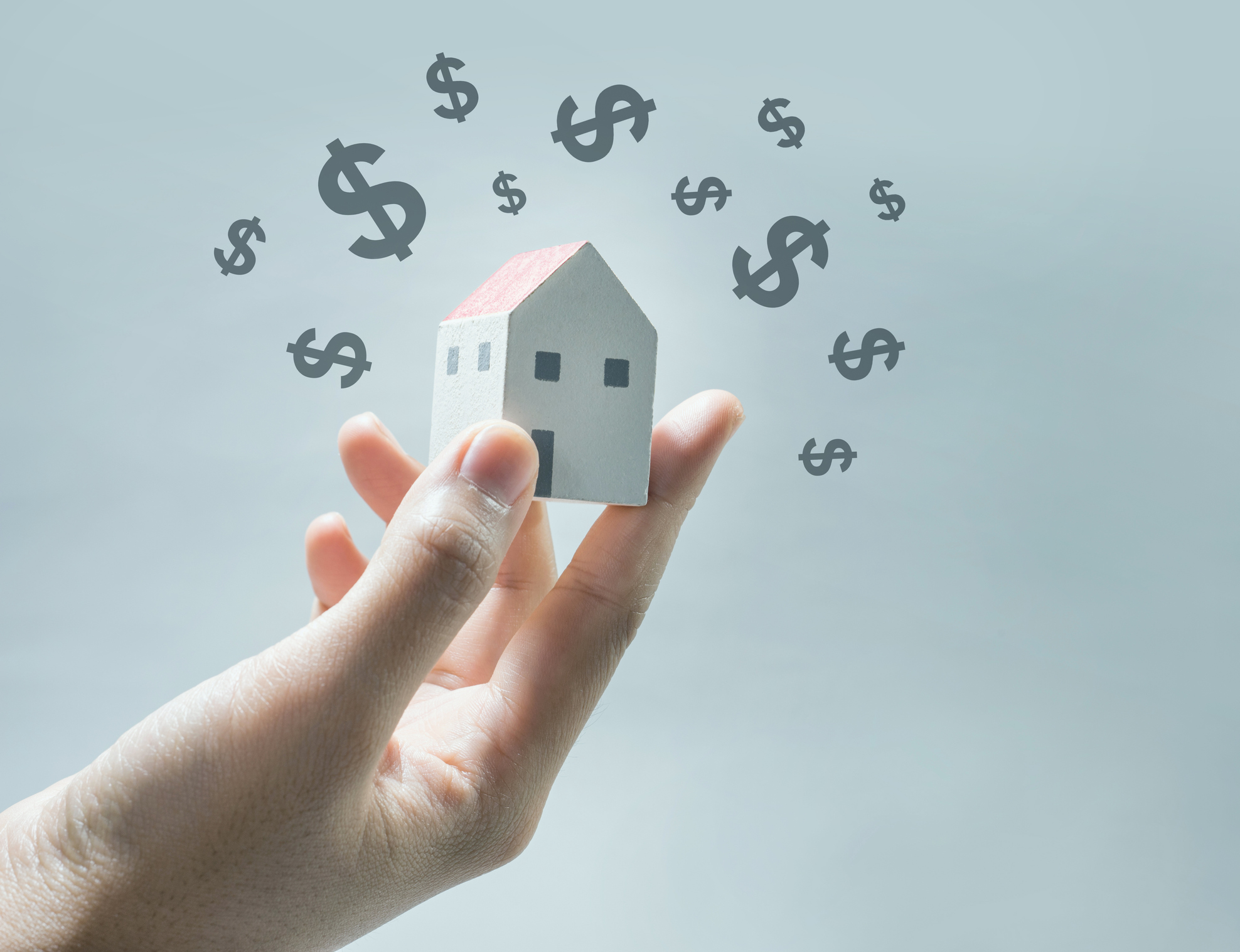Price is what you pay and value is what you get, according to Warren Buffett. While that’s absolutely true, why are there different ways to value real estate?
In this article, we’ll answer that question by looking at two of the most important ways to value property and explain the difference between market value and assessed value for income-producing real estate.
Does Market Value Equal Assessed Value?
Beginning real estate investors often make the mistake of thinking that assessed value and market value are the same things.
Buyers with this misconception see their offers getting rejected outright by the seller, real estate agents refusing to work with them, and fellow investors rolling their eyes at the beginner’s naivety.
To be fair, it’s understandable why some beginners make this mistake. After all, one would expect the assessor to want to have the maximum value for tax purposes. But, that isn’t quite the way that assessors work.

How baking a cake is similar to real estate value
Let’s use this non-real estate situation as an example of the difference between market value and assessed value.
Your favorite baker goes to the store and spends $10 buying ingredients for a cake. She pays a sales tax to the government on the assessed $10 value of the ingredients for the cake. After the cake is baked, she sells it to you for a market value of $30.
You see more value in a cake that is already baked than you do in the raw ingredients. Because of the cake’s market value, you’re probably not going to argue that you should only be charged for the $10 worth of ingredients, at least if you ever want her to bake you another cake.
The hidden purpose of assessed real estate value
Assessed real estate value works in a similar way.
Assessors analyze real estate ‘ingredients’ such as the construction date of the property, the materials used to build it, the size of the lot the house sits on, and recent sales comps – but only up to a certain point. They go through a similar assessment process with every property in the county. Then they add the individual assessed values together for one giant lump-sum assessed property value.
But - and this is an important point that even many seasoned investors forget - what the county is really looking for is only enough combined assessed value so that enough property tax is generated to fund the government budget. No less, and no more.
It doesn’t matter if a house with a market value of $100,000 is assessed at $50,000 as long as the total combined assessed values provide enough tax revenue for the budget.
What market value really means
Income property investors look at real estate values differently than assessors do.
Of course, they take the cost of the property into account. But what they’re most interested in is the market value created from the rental revenue generated and the potential for appreciation.
In a way, you could say that beginning buyers who think a property should sell for assessed value instead of market value are trying to have their cake and eat it too. Unfortunately for low ball buyers, the real world of investment real estate doesn’t work that way.

How to Determine Market Value
The market value is the price that a buyer is willing to pay for a property at a certain point in time and the price that the seller of the property is willing to accept. Unlike the opinion of the tax assessor, market values ebb and flow based on the law of supply and demand.
It’s true that determining market value can be subjective at times. In part, that’s because the value your competitor places on the house across the street may be different from the market value you see the same house as having.
With that in mind, there are a number of factors you can use to make determining market value more objective:
1. Property appearance
The exterior appearance of the house is an important factor investors use to come up with a market value.
In the real estate business, the word “elevation” is used to describe the style of the property and “curb appeal” is used to measure how nice the property looks when a tenant first pulls into the driveway or walks in front of the house.
If the tenant doesn’t want to get out of the car because the property appearance is poor, the house has low market value because it will be harder to rent.
2. Interior features
Square footage, number of bedrooms and bathrooms, quality of the flooring and appliances, and the age of mechanical systems like HVAC and plumbing affect market value.
For example, if most of the renters in your market are families, a house with only two bedrooms has less value because it doesn’t have the features most tenants are looking for. Or, a 4 bedroom home in the same market that is badly in need of a new roof has a lower market value, because sooner rather than later you’ll need to spend a lot of money on a capital improvement.
3. Supply and demand
Market values in a seller’s market will generally be high because there are more investors like you looking to buy than there is good rental property available.
When the market cycles downward, market values will also decline because there are more sellers than buyers. That can be a good time to invest because even though market values are going down tenant rents haven’t changed.
4. Financing options
The cost of capital also impacts the market value of income-producing real estate.
At today’s historically low interest rates, the monthly mortgage payment on a $100,000 house runs about $550 per month (PITI) using a 25% down payment. If the property rents for $1,100 per month, you still have plenty of cash flow to pay for operating expenses and have a profit, so a market value of $100K makes financial sense.
But rising interest rates push market values down. If interest rates rise by a little more than 3%, your mortgage payment would be over $700 and suddenly the cash flow isn’t as strong. The income potential is lower, and so is the market value you place on the property.
5. Comparable sales
Recent sales prices of comparable property in the immediate area also affect market value. Even if the cash flow from the property supports a higher purchase price, it’s usually not a good idea to pay more than what the comps suggest. The property may not appraise for a higher purchase price, and you’ll make less money when the time comes to sell because you overpaid when you purchased.

How to Determine Assessed Value
The method municipalities use to determine assessed value can be complex and also varies from one county to another. But in general, no matter where you invest, assessed valuations have the following things in common:
- Assessors assign a value to your property for tax purposes by gathering information about similar property
- Tax collection is the only reason for determining assessed value
- Property taxes collected from assessed values are used to pay for schools, police and fire services, infrastructure improvements, and other government operating expenses
- Assessed value is a percentage of the market value of the property and some municipalities charge higher percentages than others
- Politics can also affect assessed values, particularly after an election when a politician has promised to lower taxes, or even raise them in real estate market that are not landlord-friendly
- For these reasons, assessed value is almost always lower than market value, and oftentimes much, much lower
Two Other Types of Value
In addition to market value and assessed value, there are two other types of ‘value’ that you should be aware of when investing in real estate:
Appraised value
When you apply for a loan, the lender will order an appraisal from a licensed professional to verify that the value of the property is worth at least as much as the purchase price.
The contract purchase price is what you and the seller have determined the property market value to be. Ideally, the appraiser will agree with your valuation, and the property market value will “come in” at the appraised value.
Listing price
The listing or asking price of a property is the seller’s perceived value of what their property is worth. Sometimes the asking price is realistic or a starting point for negotiations. Other times what the seller thinks their property is worth so far removed from reality that you might be better off moving on to the next opportunity and let another buyer play the seller’s game.

Value is in the Eye of the Beholder
Real estate market value - similar to beauty – depends on who’s doing the looking and what they’re looking at.
In the section on Market Value earlier in this article, we said that the value you place on a house may be different from the market value another investor sees the same house as having.
If the house is a turnkey rental property and other similar income-producing properties are selling for $100,000, then logically the house across the street should also have a market value of $100K, everything else being equal.
But the other investor doesn’t see it that way because of the vacant lot on the corner that’s overgrown with weeds and home to a rusted out ’67 Chevy. He believes the market value is much lower, so he decides to walk away from the deal. You, however, know something the seller doesn’t know.
A member of your local real estate team informed you that just this morning the city council gave the final go-ahead for redeveloping the vacant lot into an apartment building. You know that single-family houses are much more attractive to renters than apartments are, so the market value of the house is easily worth $100,000 to you, and possibly much more.
By leveraging your knowledge of the local real estate market, you’re able to add value to your investment while the apartment developer does all of the work. You anticipate the market value of the house increasing, with rising rents from increased demand of tenants who would much rather live in your house than a cramped apartment unit.









